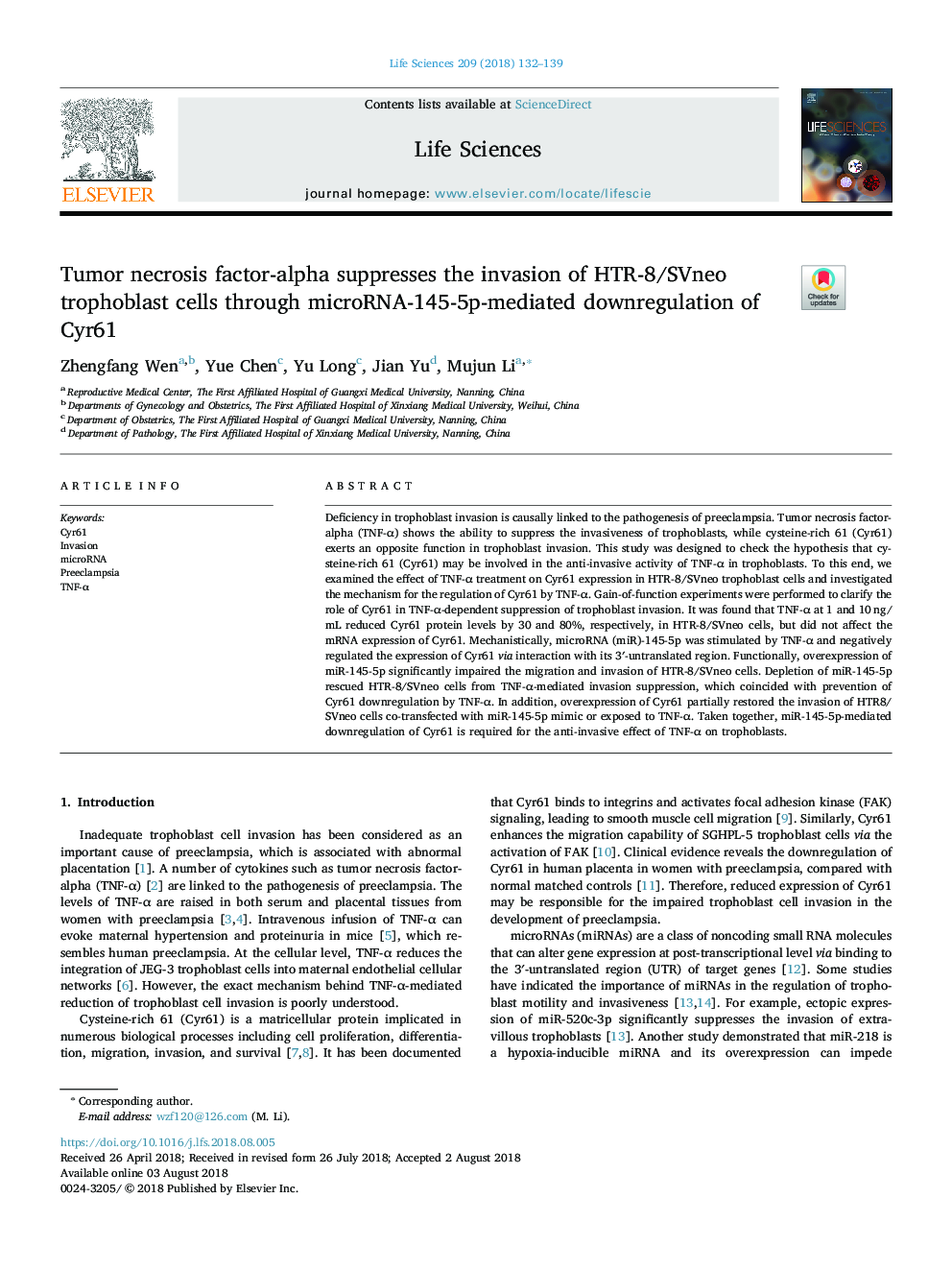| Article ID | Journal | Published Year | Pages | File Type |
|---|---|---|---|---|
| 8534504 | Life Sciences | 2018 | 8 Pages |
Abstract
Deficiency in trophoblast invasion is causally linked to the pathogenesis of preeclampsia. Tumor necrosis factor-alpha (TNF-α) shows the ability to suppress the invasiveness of trophoblasts, while cysteine-rich 61 (Cyr61) exerts an opposite function in trophoblast invasion. This study was designed to check the hypothesis that cysteine-rich 61 (Cyr61) may be involved in the anti-invasive activity of TNF-α in trophoblasts. To this end, we examined the effect of TNF-α treatment on Cyr61 expression in HTR-8/SVneo trophoblast cells and investigated the mechanism for the regulation of Cyr61 by TNF-α. Gain-of-function experiments were performed to clarify the role of Cyr61 in TNF-α-dependent suppression of trophoblast invasion. It was found that TNF-α at 1 and 10â¯ng/mL reduced Cyr61 protein levels by 30 and 80%, respectively, in HTR-8/SVneo cells, but did not affect the mRNA expression of Cyr61. Mechanistically, microRNA (miR)-145-5p was stimulated by TNF-α and negatively regulated the expression of Cyr61 via interaction with its 3â²-untranslated region. Functionally, overexpression of miR-145-5p significantly impaired the migration and invasion of HTR-8/SVneo cells. Depletion of miR-145-5p rescued HTR-8/SVneo cells from TNF-α-mediated invasion suppression, which coincided with prevention of Cyr61 downregulation by TNF-α. In addition, overexpression of Cyr61 partially restored the invasion of HTR8/SVneo cells co-transfected with miR-145-5p mimic or exposed to TNF-α. Taken together, miR-145-5p-mediated downregulation of Cyr61 is required for the anti-invasive effect of TNF-α on trophoblasts.
Related Topics
Health Sciences
Medicine and Dentistry
Cardiology and Cardiovascular Medicine
Authors
Zhengfang Wen, Yue Chen, Yu Long, Jian Yu, Mujun Li,
